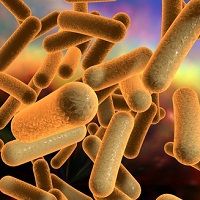Zinc Negatively Impacts C. difficile Disease Course
Researchers from Vanderbilt University used mice models in order to demonstrate the affects of zinc on the course of a C. difficile infection.

Ingesting too much zinc can worsen a patient’s infection with Clostridium difficile (C. difficile) or increase susceptibility to the infection, according to findings published in the journal Nature Medicine.
Researchers from Vanderbilt University used mice models in order to demonstrate the affects of zinc on the course of a C. difficile infection. The researchers noted that over the past decade, the incidence, severity and costs associated with C. difficile have increased. The mice were colonized with the infection and then the investigators monitored the mice after they consumed a high zinc diet.
The zinc impacted the mice in several ways, the researchers found. First, excess dietary zinc substantially altered the gut microbiota, which therefore reduced the minimum amount of antibiotics required to fight off an infection and fend off susceptibility to an infection.
“It is important to know what you are putting into your body,” study author, Eric Skaar, PhD, MPH, explained in a press release. “Multivitamins and other supplements are really only needed by those with a particular nutritional deficit in their diet.”
Secondly, when the mice were already colonized with C. difficile, excess dietary zinc consumption made the infection worse. The researchers explained this was because it increased toxin activity and changed the mice’s immune system response. The immune system was additionally impacted as the zinc binding S100 protein calprotectin demonstrated antimicrobial effects against C. difficile, the researchers added.
“We need to consider how much zinc these patients have in their diet—and maybe other trace nutrients that might also have an effect on the microbiome,” continued Skaar, who added that zinc is sometimes used by agriculturists to help animals grow.
“It’s possible that zinc supplementation of livestock is leading to animals that are more susceptible to colonization with C. diff, and that might be a way that C. diff is then passed to people,” Skaar concluded.
Related Coverage:
UV Light Kills C. Difficile, Saving Dollars and Lives
Consumer Reports Compiles List of Hospitals by Rates of C. difficile Infection
Hospital Bed CDI Transmission: Does Prior Occupant's Antibiotic Use Increase Risk?